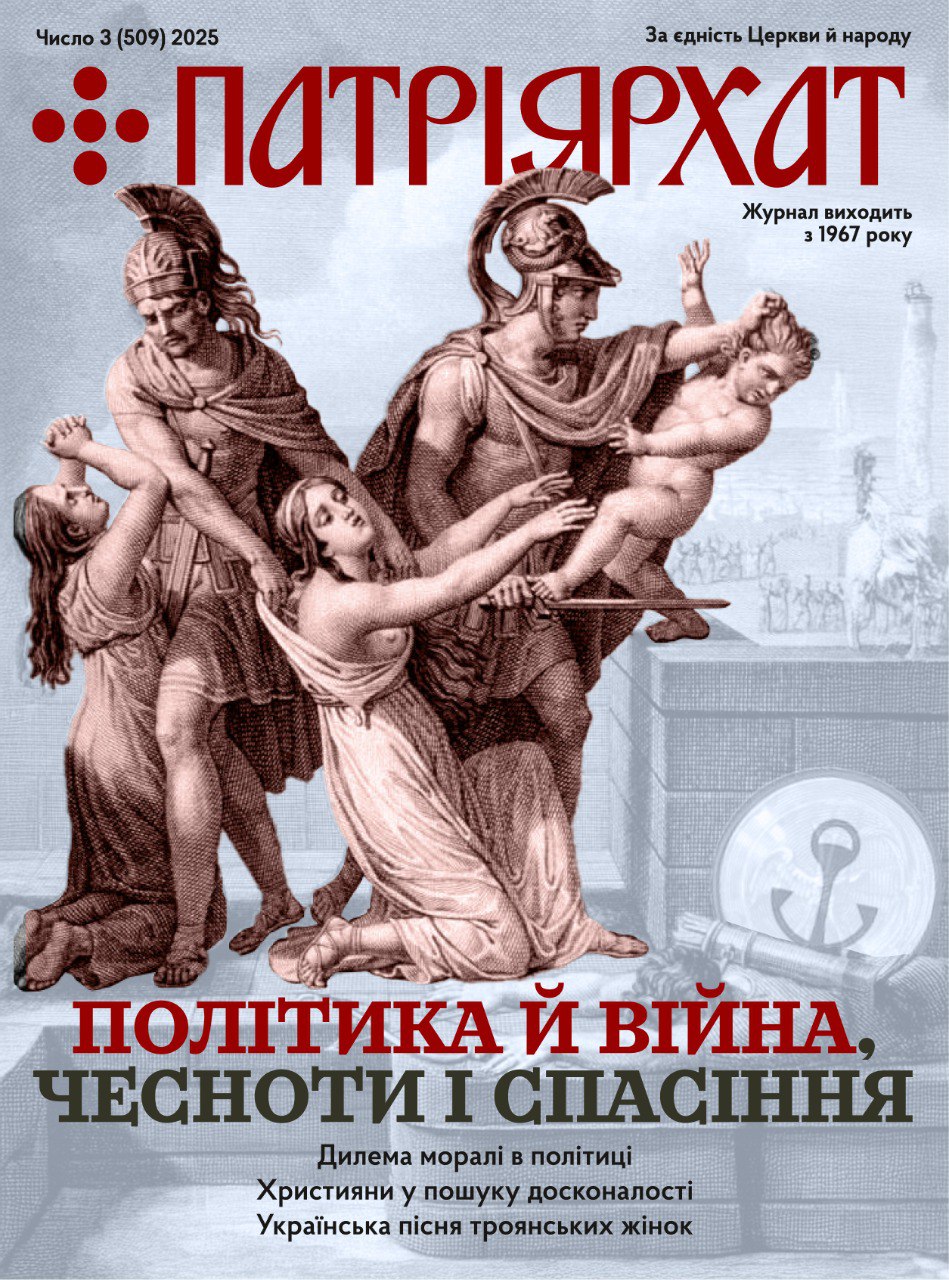A Commentary of “The Voice of the Ukrainian Community”
by Leonid Rudnytzky
Ever since the eminent theologian Fr. Wilhelm de Vries, S.J. stated at a symposium at Fordham University in New York that “patriarchates grew from below and were not founded by any decree from above” (Sees Archiepiscopal and Patriarchal Autonomy, Thomas Bird, ed. New York, 1972, p.15), the Ukrainian Catholic faithful recognized that it was up to them to have their Church crowned with a patriarchate. As a result, the officers of the Society for the Patriarchate in the Ukrainian Catholic Church, which, incidentally, sponsored the symposium, urged its members in a directive of July 27, 1972 (Nr. 4, #1.) to refer henceforth to His Beatitude Major Archbishop Josep Cardinal Slipyj as His Beatitude Patriarch Joseph I. This directive was subsequently repeated on April 19, 1972 (Nr. 10, #2.). This particular call of the Society was heeded not only by its members but by the faithful at large, numerous priests, and, as the recent reception of His Beatitude in the various American .cities bears out, also by the Ukrainian Catholic hierarchy. And thus the historic event came to pass: the Ukrainian people elected Joseph Cardinal Slipyj Patriarch by acclamation during his recent tour of the Ukrainian diaspora.
This unparalleled development has been rather accurately reflected in the world press which has covered the patriarchal quest ever since its inception. In this connection, it is interesting to note that the international press as a whole is much more attuned to the new reality in the Ukrainian Catholic Church than our own Ukrainian news media. Countless foreign newspapers and journals have carried in recent times reports on the patriarchal visitation and many of these refer to His
Beatitude as Patriarch. To mention all of them is a sheer impossibility. As a typical example, however, let us quote the influential German daily Westdeutsche Zeitunq of June 15, 1973, which carried several reports on His Beatitude’s stay in the city of Krefelds “The Prince of the Church (Cardinal Slipyj) was greeted in the city hall by Mayor Hauser…. In his welcoming speech Hauser thanked the Patriarch, who resides in Rome, for his visit to Krefeld, and spoke about the activities of the Studite sisters, the Ukrainian Catholic nuns, who have lived in Krefeld since 1958.”
The Italian press also published many articles and reports about the making of a Ukrainian Patriarch. Perhaps the most important among these is an extensive article by Fr. Alexis V. Floridi in the Giornale d’Italia of June 23, 1973. Its headline alone is quite revealing: “Ukrainian Cardinal Slipyj — Patriarch by Acclamation.”‘ In this article Fr. Floridi provides a brief historical background to the recent events and gives a detailed description of the reception accorded to His Beatitude in the cities of the United States, and particularly in New York, The really significant aspect of Fr. Floridi’s report, however, is the fact that he quotes all the Ukrainian hierarchs present at the banquet and stresses the fact that they unanimously hailed Cardinal Slipyj as Patriarch Joseph the First.
As a footnote here we might add that the American news media also faithfully reflected this most important factor in our quest, i.e., the unanimity of purpose of the Ukrainian people and their spiritual leaders. The NC News Service release of Tuesday, Jule 12, 1973, quoted Professor Thomas E. Bird of Queens College, who gave a cogent, detailed analysis of the present situation of the Ukrainian Catholic Church. “This wave of unanimity was not so evident among Ukrainian-rite Catholic bishops in the U.S. during Cardinal Slipyj’s tour in 1968, Bird said. During this tour, however, members of the Ukrainian-rite hierarchy have gone out of their way publicly to speak of him as ‘patriarch or Patriarch Joseph Iі and to address him as Your Beatitude, our patriarch.
These supporters have included Archbishop Ambrose Senyshyn of Philadelphia, Bishop Jaroslav Gabro of Chicago, and Bishop Schmondiuk of Stamford. During his first concelebrated liturgy at St. George’s Church here (in New York) on this current visit, Bishop Schmondiuk again referred to the cardinal in a commemoration as ‘Joseph I, our first patriarch’ and later Bishop Isidore Boretsky, Toronto, Can., intoned, ‘many year to our patriarch.'”
In view of the above, it is clear that the world press is quite accurately reporting the events that have come to pass in the recent past, and what is even more important, many of the reports seek the reality behind the things that transpired.
The journalists and reporters who write about His Beatitude and the patriarchal movement seem to sense that they are dealing with something unique, a spiritual happening which has no equal in the annals of the modern Church. Waltraut Fieck, a staff member of the German newspaper Rheinische Post, in an article entitled “The Dignity of the Office of an Age,” (June 15, 1973) in describing the Holy Liturgy celebrated by His Beatitude in Krefeld, noted this when she made the following comments: “The glittering television lights, the clicking and zooming of the cameras gave the event a strange flavor; the time of technology and mass-media captured — but only superficially— a mystery which can not be captured in word or picture. Anyone who saw the standing-room—only crowd had to realize the futility of such attempts.”
For us Ukrainians it is fortunate indeed, that the world press is recording these historic events properly and conscientiously for in doing so it bears witness to the unique mission of our Patriarch: the mission to give inalienable and indestructible dignity to the Catholic Church in a world of collapsing values.
And perhaps when everything is said and done, when all the Mailleuxs, the Casarolis, the Willibrands, and other proponents of the present Vatican Ostpolitik have had their say, what will remain from this age of political machination and cynical indifference is the incontestable claim of the Ukrainian Confessor of Faith made on behalf of all those who truly follow the teachings of Christ.

